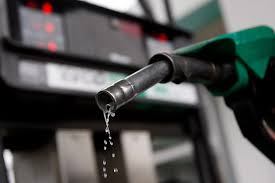Filling stations across Lagos, Ogun and other parts of Nigeria have increased the pump price of Premium Motor Spirit (PMS), popularly called petrol, to ₦900 per litre and above, despite a recent drop in global crude oil prices. The development has sparked concern among motorists and businesses already struggling with high fuel costs.
Checks by our correspondent on Monday showed that some retail outlets owned by the Nigerian National Petroleum Company Limited (NNPCL) had adjusted their pump prices to ₦900 per litre in Lagos and Ogun States. This comes even as the international price of crude oil fell from nearly $69 to around $66 per barrel.
Major players linked to the Dangote Petroleum Refinery, such as Ardova Plc (AP) and Heyden Petroleum, also reviewed their prices upwards. At the Mowe axis of Ogun State, AP sold petrol for ₦925 per litre, while Heyden dispensed the product at ₦910. Along the busy Lagos-Ibadan Expressway, different filling stations displayed varying prices, confirming a new fuel price regime in the South-West.
Before this increase, petrol sold below ₦900 in many parts of Lagos and Ogun throughout last week. However, in the South-East, South-South, and Northern regions, prices had been higher due to logistics and supply challenges. As of Monday, TotalEnergies outlets in Lagos were selling at ₦910 per litre, while Asharami retailed at ₦905. NIPCO and Fatgbems were still below ₦900, selling at ₦890 and ₦892 respectively. Enyo retail stations pegged their price at ₦915.
Data from Petroleumprice.ng confirmed that the Dangote refinery had raised its ex-depot petrol price from ₦820 to ₦850 last Friday. Although no official explanation was given for the increment, depot prices among selected suppliers averaged ₦855 per litre as of Monday. Prices ranged from ₦850 at Aiteo to ₦870 at Sobaz and Mainland depots. Other notable depot prices included NIPCO Lagos at ₦852, Northwest at ₦860, Alkanes at ₦860, Ever Oil at ₦863, TSL at ₦864, Pinnacle at ₦851.5, Menj at ₦852, and Sahara at ₦855.
Ironically, while Nigerian traders adjusted pump prices upward, international crude oil benchmarks were experiencing a decline. According to Reuters, Brent crude futures settled at $66.59 per barrel, slightly up by 0.2 per cent, while West Texas Intermediate (WTI) remained unchanged at $63.88 per barrel. The global oil market reportedly suffered its steepest weekly losses since June, largely due to economic concerns linked to global trade tensions.
Some analysts linked last week’s crude oil volatility to diplomatic developments, particularly a reported plan for a meeting between Russian President Vladimir Putin and former US President Donald Trump, aimed at resolving the war in Ukraine. US crude prices also fell earlier in the session on speculation about a potential deal that could legitimise Russia’s control of territories seized during its invasion.
Speaking on the situation, the National Publicity Secretary of the Petroleum Products Retail Outlet Owners Association of Nigeria (PETROAN), Mr Joseph Obele, expressed optimism that fuel prices could drop later this week. According to him, the recent hike was influenced by a temporary rise in crude oil prices about 10 days ago, which prompted refineries to adjust prices upward.
“Last weekend, there was a rise in the price of crude oil. Refineries responded by reviewing their prices upward. A few days later, the crude price dropped again, especially after tensions eased between the US and Russia. So, we expect petrol pump prices to be reviewed downward this week,” Obele said.
He also pointed out that one factor that contributed to the recent pump price increase was a suspension of PMS loading by the Dangote refinery for about eight days. Although the refinery denied halting supply, it confirmed it delivers an average of 40 million litres of petrol daily to the Nigerian market.
“We are hopeful that by Tuesday or Wednesday, Nigerians will see a downward adjustment in the pump price of petrol,” Obele added.
Meanwhile, motorists and commuters have lamented the impact of the latest pump price hike on transportation fares, goods delivery costs, and household budgets. Many fear that even if the prices drop later this week, the effect of the increase will continue to strain daily living costs.
